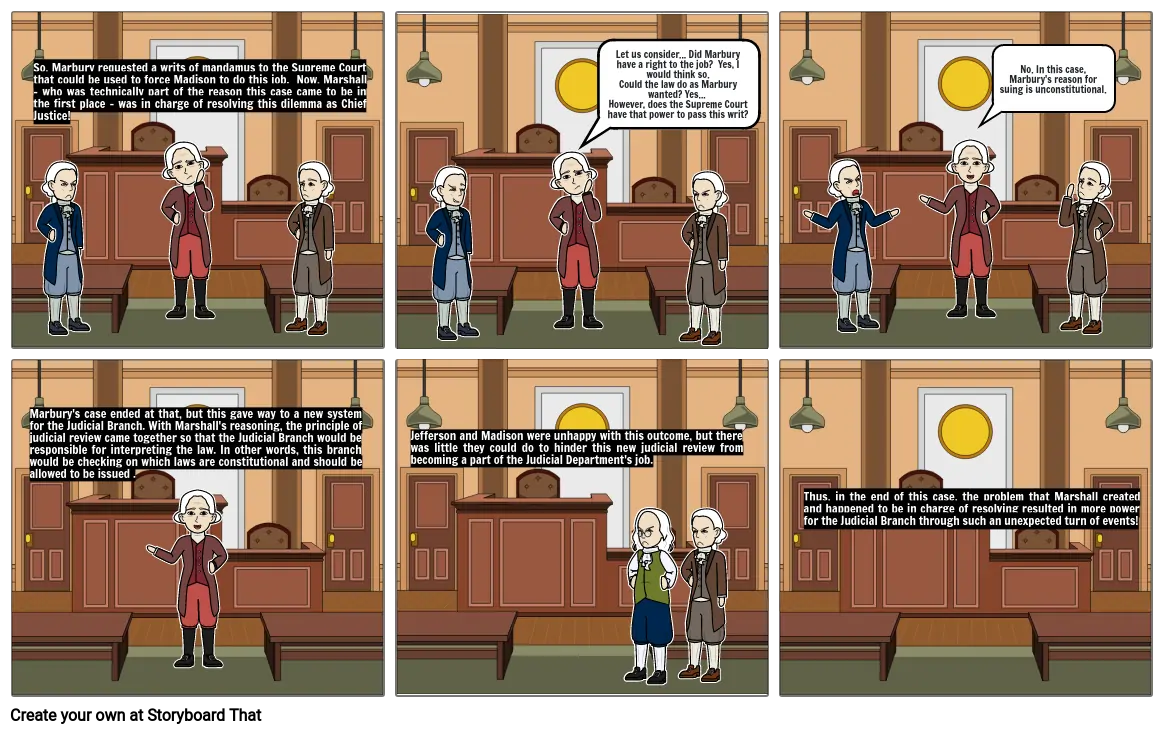Marbury vs. Madison (Part 2)

Storyboard Text
- So, Marbury requested a writs of mandamus to the Supreme Court that could be used to force Madison to do this job. Now, Marshall - who was technically part of the reason this case came to be in the first place - was in charge of resolving this dilemma as Chief Justice!
- Let us consider... Did Marbury have a right to the job? Yes, I would think so.Could the law do as Marbury wanted? Yes... However, does the Supreme Court have that power to pass this writ?
- No. In this case, Marbury's reason for suing is unconstitutional.
- Marbury's case ended at that, but this gave way to a new system for the Judicial Branch. With Marshall's reasoning, the principle of judicial review came together so that the Judicial Branch would be responsible for interpreting the law. In other words, this branch would be checking on which laws are constitutional and should be allowed to be issued .
- Jefferson and Madison were unhappy with this outcome, but there was little they could do to hinder this new judicial review from becoming a part of the Judicial Department's job.
- Thus, in the end of this case, the problem that Marshall created and happened to be in charge of resolving resulted in more power for the Judicial Branch through such an unexpected turn of events!
Over 30 Million Storyboards Created
No Downloads, No Credit Card, and No Login Needed to Try!


